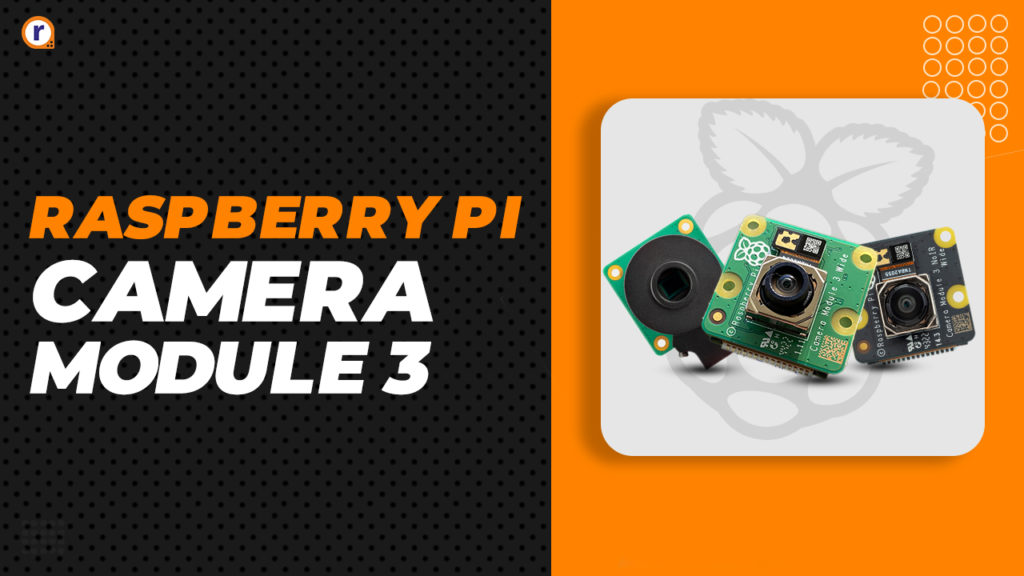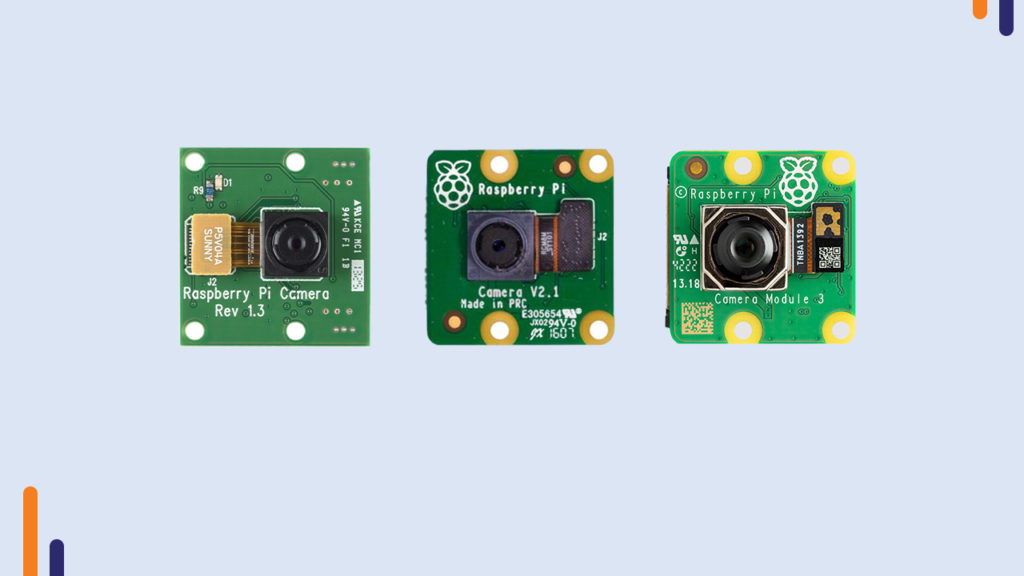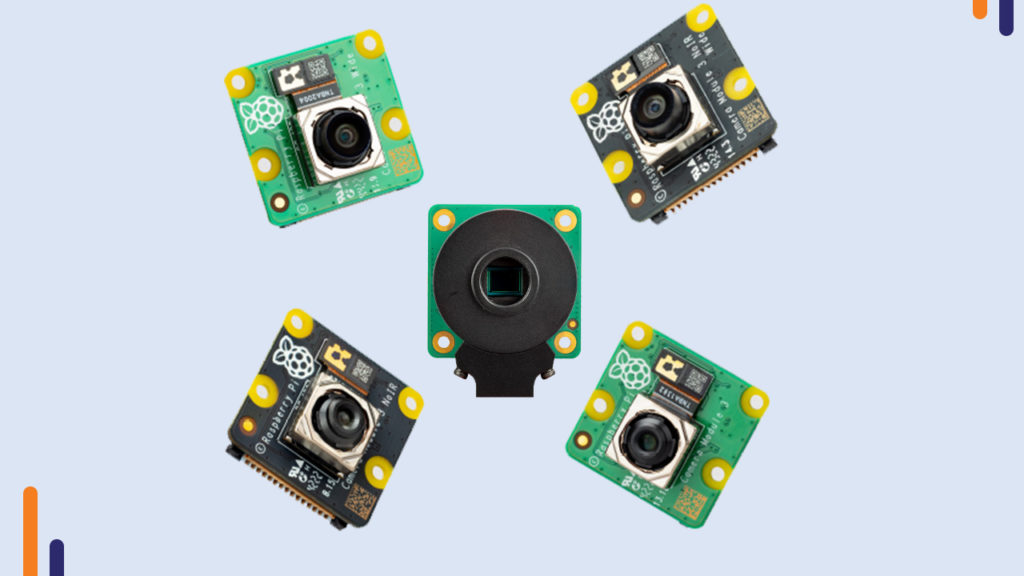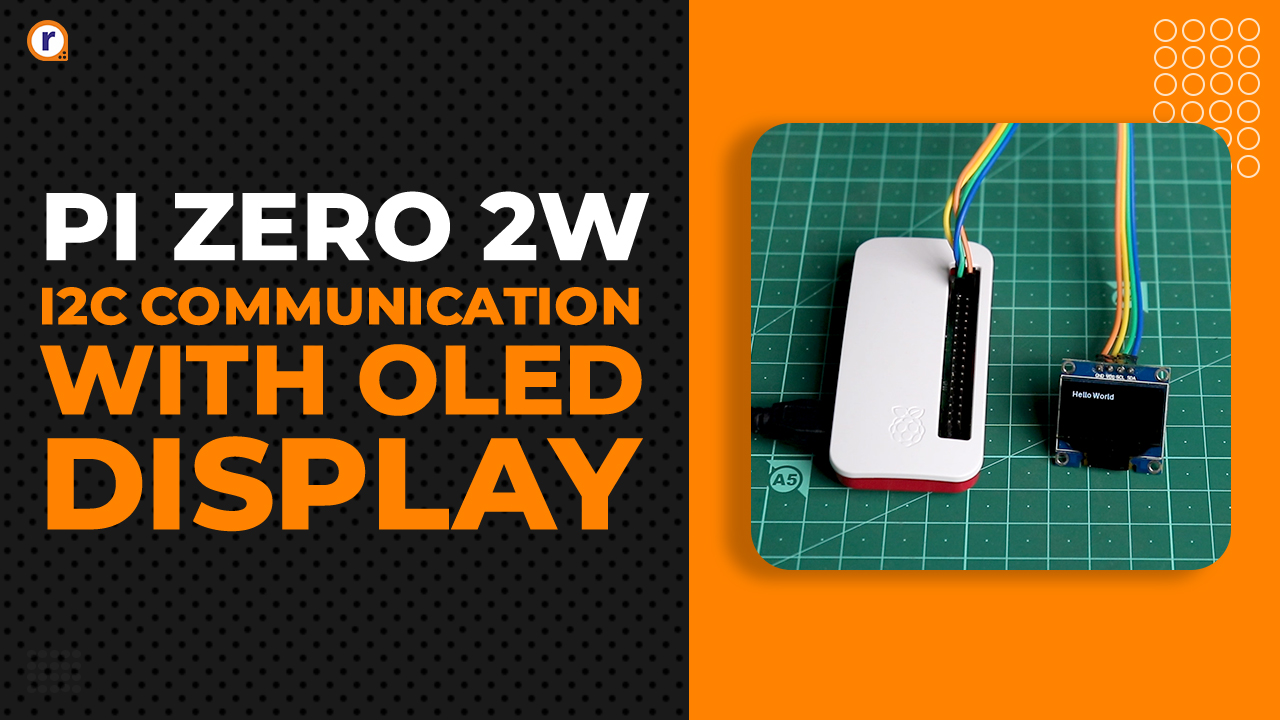Raspberry Pi Launches Range of Official Camera 3 modules
If you have ever done any DIY electronics in the past, there is a high chance that you might know about raspberry pi
The Raspberry Pi is a small, affordable, and powerful computer that has the ability to interact with the world through a variety of digital input and output devices.

If you have ever done any DIY electronics in the past, there is a high chance that you might know about raspberry pi
The Raspberry Pi is a small, affordable, and powerful computer that has the ability to interact with the world through a variety of digital input and output devices.
One such device is the Raspberry Pi Camera Module, a small camera that can be attached to the Raspberry Pi to enable it to take pictures and record video.
The original 5-megapixel model was released in 2013, and an 8-megapixel Camera Module v2 was released in 2016. For both iterations, there are visible light and infrared versions. A 12-megapixel High-Quality Camera was released in 2020.

Now again, raspberry pi has come up with its newest range of Camera modules -The raspberry pi camera 3. Camera Module 3 is a compact camera . It offers an IMX708 12-megapixel sensor with HDR, and features phase detection autofocus. Camera Module 3 is available in standard and wide-angle variants, both of which are available with or without an infrared cut filter.
Camera Module 3 can be used to take full HD video as well as stills photographs and features an HDR mode up to 3 megapixels. Its operation is fully supported by the libcamera library, including Camera Module 3’s rapid autofocus feature, making it easy for beginners to use while offering plenty for advanced users. Camera Module 3 is compatible with all Raspberry Pi computers.
The PCB size and mounting holes remain the same as for Camera Module 2. The Z dimension differs: due to the improved optics, Camera Module 3 is several millimeters taller than Camera Module 2.
Here are the different versions Raspberry Pi that module 3 is offering
- Raspberry pi Camera 3
- Raspberry pi Camera 3 Noir
- Raspberry pi Camera 3 Wide
- Raspberry pi Camera 3 Wide Noir
- Raspberry pi HQ Camera - M12 Mount (not part of module 3,but an upgrade of hq camera)

All variants of Camera Module 3 feature:
• Back-illuminated and stacked CMOS 12-megapixel image sensor (Sony IMX708)
• High signal-to-noise ratio (SNR)
• Built-in 2D Dynamic Defect Pixel Correction (DPC)
• Phase Detection Autofocus (PDAF) for rapid autofocus
• QBC Re-mosaic function
• HDR mode (up to 3-megapixel output)
• CSI-2 serial data output
• 2-wire serial communication (supports I2C fast mode and fast-mode plus)
• 2-wire serial control of focus mechanism
Specification
- Sensor: Sony IMX708
- Resolution: 11.9 megapixels
- Sensor size: 7.4mm sensor diagonal
- Pixel size: 1.4μm × 1.4μm
- Horizontal/vertical: 4608 × 2592 pixels
- Common video modes: 1080p50, 720p100, 480p120
- Output: RAW10
- IR cut filter: Integrated in standard variants; not present in NoIR variants
- Autofocus system: Phase Detection Autofocus
- Dimensions: 25 × 24 × 11.5mm (12.4mm height for Wide variants)
- Ribbon cable length: 200mm
- Cable connector: 15 × 1mm FPC
- Compliance: FCC 47 CFR Part 15, Subpart B, Class B Digital Device
- Electromagnetic Compatibility Directive (EMC) 2014/30/EU
- Restriction of Hazardous Substances (RoHS) Directive
- 2011/65/EU
- Production lifetime: Raspberry Pi Camera Module 3 will remain in production until at least January 2030
The major difference between these variants are as follows:-

Conclusion: -
It looks like it is a very versatile and powerful camera that is suitable for a wide range of applications. The ability to capture high-quality images and video, as well as the inclusion of features such as phase detection autofocus and HDR mode, make it a great choice for photographers and videographers. The availability of both visible light and infrared versions also gives users the flexibility to choose the right camera for their needs. Overall, it seems like the Camera Module 3 is a valuable addition to the RPI ecosystem, and I'm sure the DIY community will well receive it.
For details on getting started with a raspberry pi camera click here.






